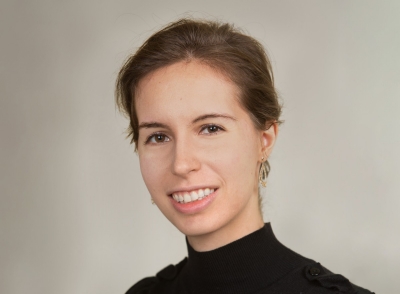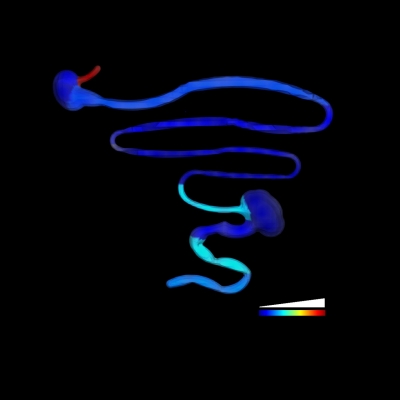NORMAN, OKLA. – The answer is something infectious disease experts are working to uncover. As COVID-19 revealed, the same pathogen can have widely varying outcomes in different people.
Laura-Isobel McCall, an assistant professor in the Department of Chemistry and Biochemistry in the University of Oklahoma’s College of Arts and Sciences, was selected as one of the 2021 Burroughs Wellcome Fund Investigators in the Pathogenesis of Infectious Disease. This highly competitive PATH award provides $500,000 over a period of five years to facilitate multidisciplinary approaches to the study of human infectious diseases.
“OU is proud to have its faculty recognized by prestigious research awards such as the one given to Dr. McCall by the Burroughs Wellcome Fund,” said OU vice president for research and partnerships Tomás Díaz de la Rubia. “Her fundamental research is at the frontiers of her field and is helping advance our understanding of some of the most vexing questions in the field of infectious disease. Even at this early stage in her career, Dr. McCall is already having a significant impact on a very important field.”
McCall’s lab uses liquid chromatography mass spectrometry, 3-D metabolomics and data science tools to better understand why pathogens affect different parts of the body differently and why those differences also vary from person to person.
The PATH award is particularly exciting, McCall said, because it is a more holistic way to approach infectious disease research. Rather than focusing more specifically on the source of an infection, this award enables researchers to focus on the larger experience.
“One of the key rules that determine how bad a disease can be is the body part that is affected,” McCall said. “What we’re getting at is uncovering the fundamental rules that govern location of disease. The unique way we’re doing this is that rather than looking at the pathogen side of things, we’re looking at how each different organ in your body responds to infection on a chemical level.”



